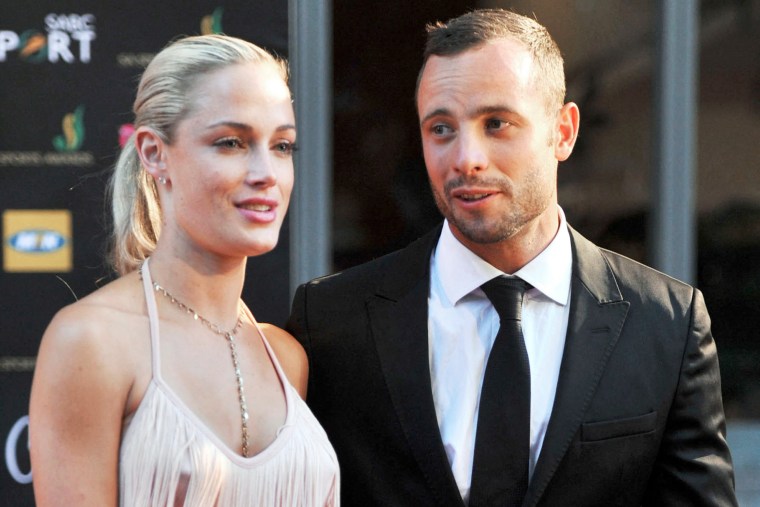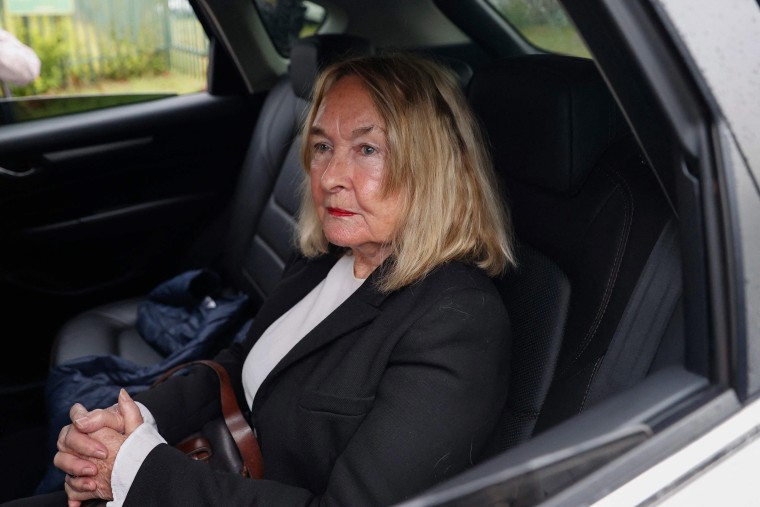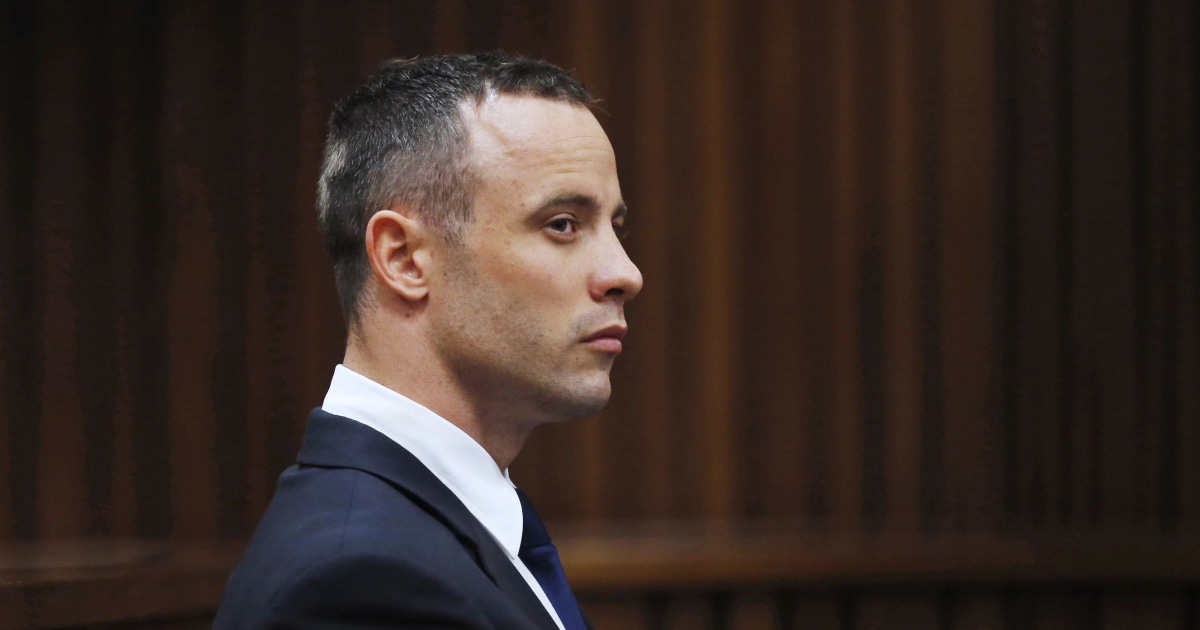Oscar Pistorius, the disgraced South African Paralympian who murdered his girlfriend 10 years ago, was denied parole on Friday, following a hearing at a prison in Pretoria, South Africa’s administrative capital, where he has been held.
The 36-year-old double amputee sprinter, known as the «Blade Runner» for his carbon fiber prosthetic legs, shot Reeva Steenkamp four times through a locked bathroom door at her Pretoria home in the early hours of the day. Valentine’s Day in 2013. An up-and-coming model and law graduate, she was 29 years old.
The Pistorius trial was broadcast around the world and the details of Steenkamp’s death shocked the public, while the case instantly ended the career of a pioneering sportsman who made history competing against healthy athletes in the Olympic Games.
A statement from South Africa’s Department of Correctional Services said Pistorius would be considered for parole again in August 2024 and would not be released now because he «did not complete the minimum period of detention as ruled by the Supreme Court of Appeal.»
Steenkamp family lawyer Tania Koen said in a statement after the parole board’s decision: «While we welcome today’s decision, today is no cause for celebration. We miss Reeva terribly and will for the rest of our lives. We believe in justice and hope it continues to prevail.»
Pistorius has always maintained that he mistook Steenkamp for a robber and shot him by mistake, but was eventually convicted of murder. Under South African law, he is eligible for release after serving half of his sentence of 13 years and five months.
Had Pistorius been released before the end of his prison term, he likely would have had to wear a security tag and not travel outside of Gauteng province, which includes Johannesburg and Pretoria. He reportedly remained under the supervision of the authorities and attended periodic appointments until he had completed his entire sentence.
Pistorius met with Steenkamp’s father, Barry, in June 2022 as a condition of the parole process. His family opposed his release because they still don’t believe Pistorius’s account of the murder of his daughter.
Her mother, June Steenkamp, attended the hearing Friday to deliver written and oral statements to the parole board that explained the effect Reeva’s murder has had on their lives.
“Unless he comes clean, they don’t feel like he’s rehabilitated,” Koen told reporters outside the Atteridgeville Correctional Center jail before the hearing.
Pistorius’ lengthy trial began in 2014, with two subsequent appeals by prosecutors. The multiple Paralympic champion was initially found guilty of manslaughter, an offense comparable to manslaughter, for shooting Steenkamp.
But in 2015, prosecutors appealed the manslaughter finding and won a murder conviction.

Pistorius was sentenced to six years in prison for the murder, but prosecutors again appealed what they called a «surprisingly lenient» punishment. The Supreme Court of Appeals then increased his sentence to 13.5 years in prison in 2017.
“It completely dominated the coverage at the time, on all radio and television stations, as well as in newspapers, online, social media, etc.,” Glenda Daniels, an associate professor of media studies at NBC News, told NBC News. the University of the Witwatersrand in Johannesburg. . “There was even an entire TV channel dedicated to the trial.”
There were many layers that contributed to the global interest in the trial, Daniels said, including Pistorius as «a beloved figure» in the sports world, locally and internationally, and the couple’s celebrity status.
Pistorius was born with a congenital condition that resulted in both legs being amputated below the knee when he was 11 months old.
But he became world famous for his sporting exploits, leading the South African team at the opening ceremony of the 2012 London Olympics, days before becoming the first double amputee to compete against able-bodied athletes in the games. He would reach the semifinals in the 400 m, the distance in which he specializes.
As a Paralympic athlete, he was a world record holder and world champion. This led to lucrative endorsement deals with Nike and Oakley, which were discontinued following Steenkamp’s death.

At his trial in 2014, the court heard a previous girlfriend who said Pistorius had a gun with him «all the time,» including on his nightstand while he slept.
Pistorius told the court that his actions in shooting Steenkamp were influenced by his fear of a home invasion. He said he had been followed, shot at and kidnapped while he was living in South Africa and said he was «just trying to protect Reeva» as he apologized to her family.
“I thought there was a thief breaking into my house. Initially I froze. The first thing that went through my mind was that I needed to arm myself,” he told the court.

